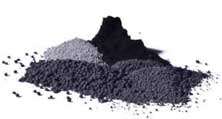US-based carbon black provider Cabot Corporation says that it has enhanced its manufacturing capabilities in North America for circular reinforcing carbons powered by its Evolve sustainable solutions technology platform. With this milestone, Cabot’s site in Ville Platte, Louisiana, US, joins Mauá, Brazil, and Valasske Mezirici (Valmez), Czech Republic, as manufacturing locations with demonstrated circular reinforcing carbons production capability.
The circular reinforcing carbons are made using tyre pyrolysis oil (TPO) derived from end-of-life tyres that leverage an International Sustainability & Carbon Certification (ISCC) Plus mass balance approach.
Furthermore, Cabot says it has expanded its global network of ISCC Plus certified sites to 14 facilities, enhancing the supply of certified sustainable solutions.
Across the globe, tyre manufacturers have established ambitious sustainability goals, with many aiming to achieve 40% sustainable material usage in total tyre production by 2030 and 100% by 2050.
In support of these goals, there is a growing interest in circular solutions, including Cabot’s TPO based circular reinforcing carbons, which serve as a drop-in replacement for traditional carbon black, enabling manufacturers to boost the sustainable content of their products without compromising performance.
By broadening its circular reinforcing carbons manufacturing capabilities in North America, Cabot adds it is strengthening supply chain efficiency through its “make-in-region, sell-in-region” approach, while significantly reducing transportation-related emissions across its value chain – furthering its commitment to environmental sustainability.
As part of its commitment to advancing circularity and traceability, Cabot has also expanded the number of ISCC Plus certified sites across its global network, strengthening its capacity to offer customers third-party certified sustainable solutions with reliable performance at industrial scale.
The Boston-based firm currently has 12 certified sites supporting its reinforcing carbon portfolio across Europe, the Americas and Asia as well as two certified masterbatch and compounding sites in Europe.
Mass balance accounting is a chain of custody approach designed to trace the flow of materials through a complex value chain, including recycled feedstock at plants. Mass balance can be a key lever to accelerate the substitution of fossil raw materials and scale-up the use of recycled materials within existing infrastructures.

